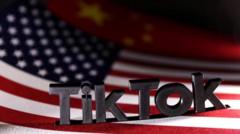TikTok has attempted to challenge the impending ban by applying for an emergency stay from the US Supreme Court. In its filing, TikTok argued for a "modest delay" to allow the court to review the case and give the new administration a chance to assess the situation. The company emphasized its role as an essential platform for free speech in the US, asserting that the ban would inflict "immediate irreparable harm" on both the company and its users. This plea follows a recent setback, where a federal appeals court dismissed its request to overturn the ban, characterizing it as the result of "extensive, bipartisan action" by Congress and previous administrations.
Interestingly, Trump appears to oppose the ban, a shift from his earlier stance during his first term when he considered actions against the platform. He noted his positive sentiments towards TikTok, citing its effectiveness in reaching younger voters—key demographics that played a significant role in his 2020 electoral efforts. Despite initially joining TikTok only in June, Trump has amassed a considerable following on the platform.
While the meeting may signal a possible reconsideration of the ban, TikTok's position remains precarious as the clock ticks down to the enforcement deadline. As the situation unfolds, it raises questions about how social media platforms will navigate the intersection of business, politics, and national security in the United States.
Interestingly, Trump appears to oppose the ban, a shift from his earlier stance during his first term when he considered actions against the platform. He noted his positive sentiments towards TikTok, citing its effectiveness in reaching younger voters—key demographics that played a significant role in his 2020 electoral efforts. Despite initially joining TikTok only in June, Trump has amassed a considerable following on the platform.
While the meeting may signal a possible reconsideration of the ban, TikTok's position remains precarious as the clock ticks down to the enforcement deadline. As the situation unfolds, it raises questions about how social media platforms will navigate the intersection of business, politics, and national security in the United States.





















